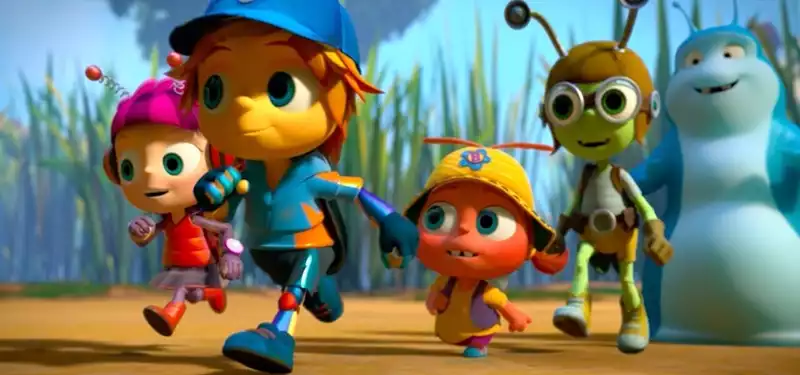Oct 6, 2020
Australia Eliminates Quotas on Children's Content, Threatening "Thousands of Jobs"
In April, the Australian federal government suspended certain television content slots in the country to deal with the disruption caused by the coronavirus. This both pleased broadcasters and discouraged producers of children's content, including animation studios.
Under this quota, commercial networks had to broadcast 260 hours of children's programming and 130 hours of early childhood programming per year, 55% of which had to be Australian-made; new rules scheduled to take effect on January 1, 2021, will eliminate these obligations. Broadcasters will have to ensure that 55% of their content is Australian, but will instead be able to fill that slot with drama and documentary programs.
Broadcasters have long called for the elimination of the children's content quota, claiming that children's programming has a negative impact on advertising revenue due to its small audience. In April, when advertising was hit by the pandemic, Prime Minister Scott Morrison's Conservative government suspended this slot as part of the broadcasters' bailout package. The networks then pressed their case, demanding greater freedom to air profitable genres such as reality shows, news, and sports.
Communications Minister Paul Fletcher, who announced the new rules on Wednesday, reiterated the broadcasters' claim: "Few people watch children's content on commercial television. The new rules will remove the obligation for networks to air animated programs such as "Beat Bugs" (top image) and "Alien TV."
Industry group Screen Producers Australia (SPA) condemned the changes, predicting that "thousands of jobs" would be lost and that production of Australian and children's content would be "cut by at least half." CEO Matthew Deener said in a statement:
Deregulating legacy platforms without a plan for transitioning to new platform regulation is a disjointed and incomplete policy response, tinkering around the edges and being driven by old world thinking appears to have little regard for the future of Australian screen content. A once-in-a-generation opportunity to reset the foundation of the Australian narrative for future generations and bring regulation into the 21st century was presented to the government in a unified way by the film industry, and the response presented today is inadequate and needs to be reconsidered.
What Deaner calls "new platforms" are central to this discussion: streaming platforms such as Netflix and Amazon have drawn viewers away from linear broadcasters while evading domestic regulation. Producers had hoped that the government would extend slots to streaming broadcasters, rather than watering down broadcast slots. That has yet to happen, but streaming distributors will now be required to report their content acquisitions to the government.
To assist producers, the government also announced a new funding package. The Australian Children's Television Foundation, a non-profit children's media organization, will receive $14 million and Screen Australia will receive $21 million to be used to produce local dramas, documentaries, and children's content. The Foundation will also receive US$2 million to produce scripts and scripted content. An additional US$2 million will be allocated to support scriptwriting and script development. Fletcher explained:
We will directly fund ...... to complement what broadcasters might choose to do. The ABC (Australian Broadcasting Corporation) is by far the most popular program for children, and children are more likely to use downloadable and streaming content. What we want to do is continue to help ensure that quality Australian children's television programming is aired in Australia and around the world.
In a statement, the SPA welcomed the funding, but added that it would not offset the damage caused by the change in the quota system:
While the additional funding is welcome, the lack of regulations to stimulate commissions and meet the needs of the Australian child audience Concerns about whether this is an effective measure.
The controversy is similar to the debate currently taking place in the European Union. In France, Netflix is actively resisting this change.
.



Post your comment